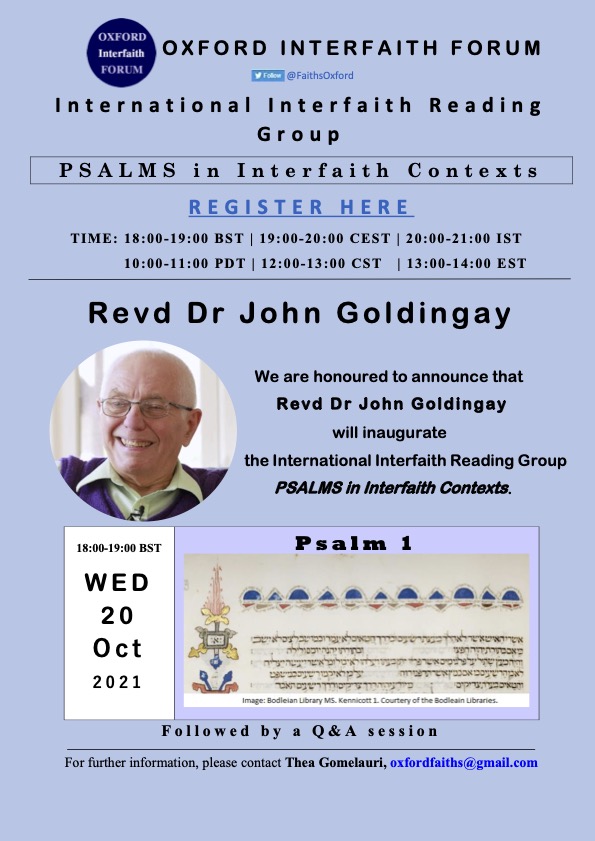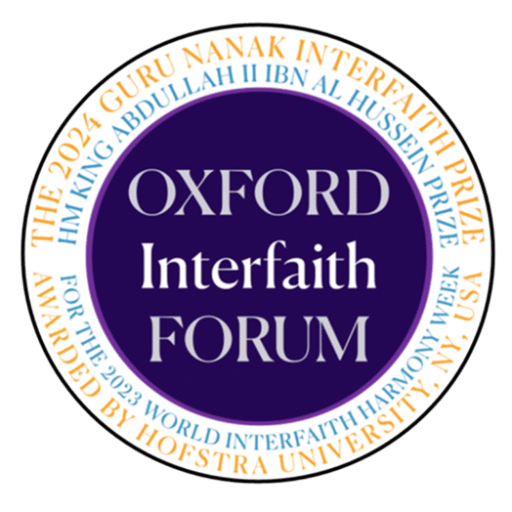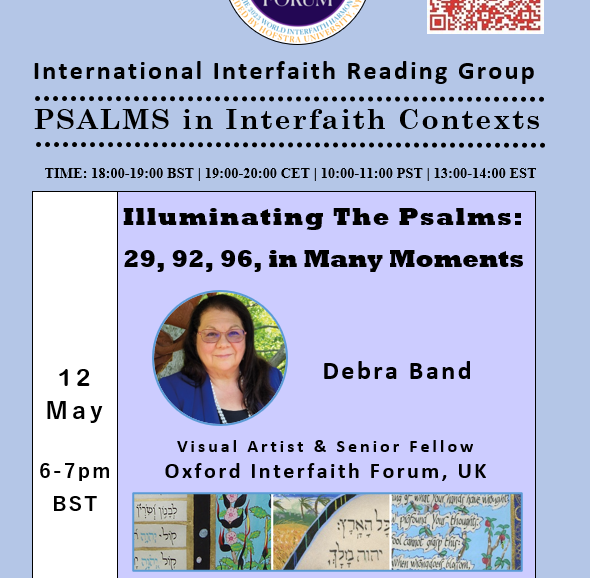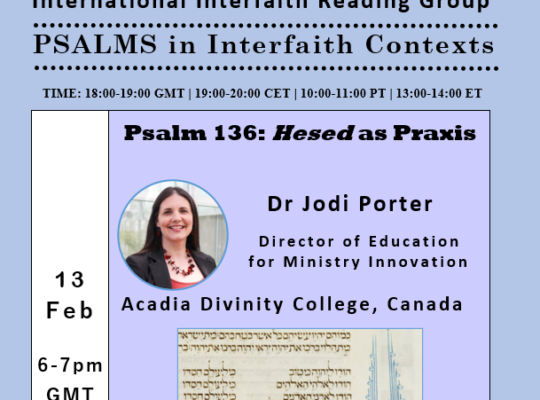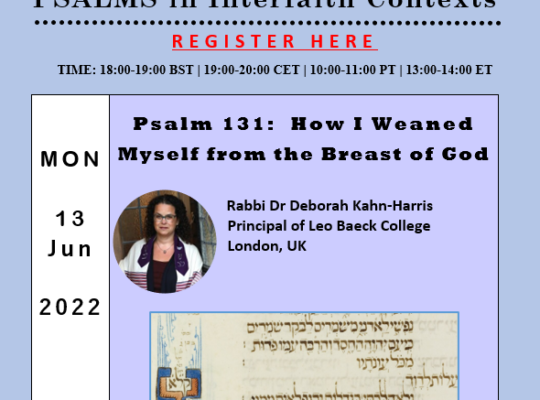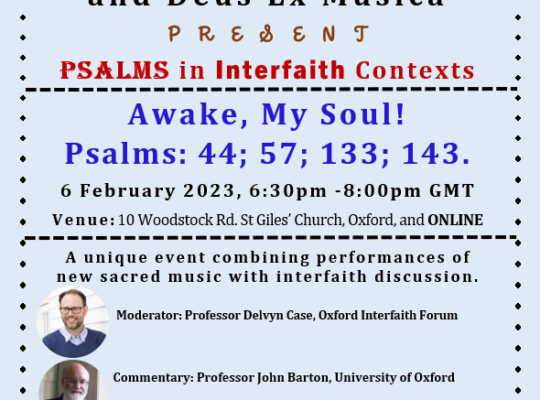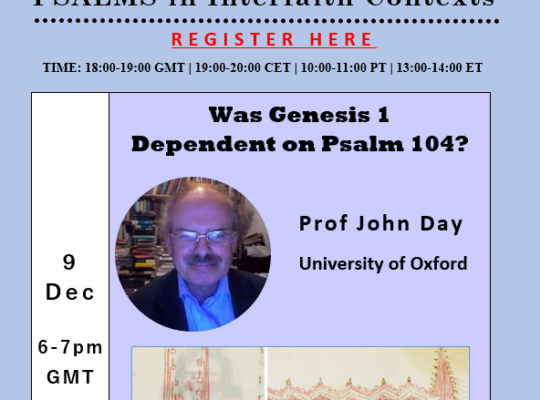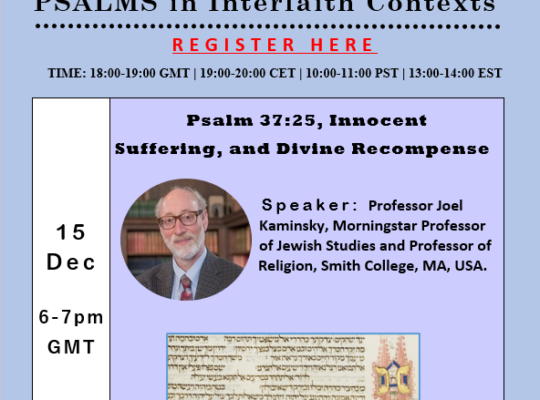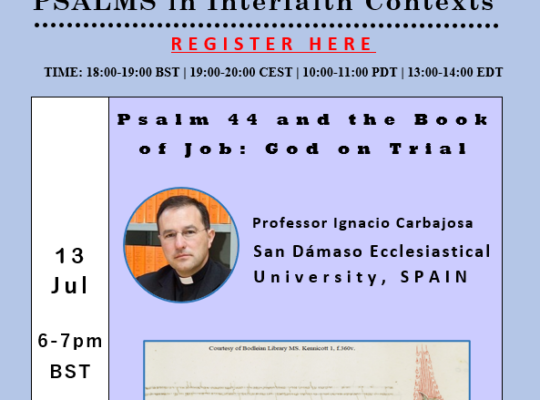12 May, 2024
We are deeply honoured to welcome Debra Band, Visual Artist, Calligrapher, Illuminator, and Senior Scholar at the Oxford Interfaith Forum, to lead the Psalms in Interfaith Contexts Reading Group session.
Or Scan the QR Code
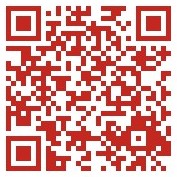
Here are the details of this fascinating event.
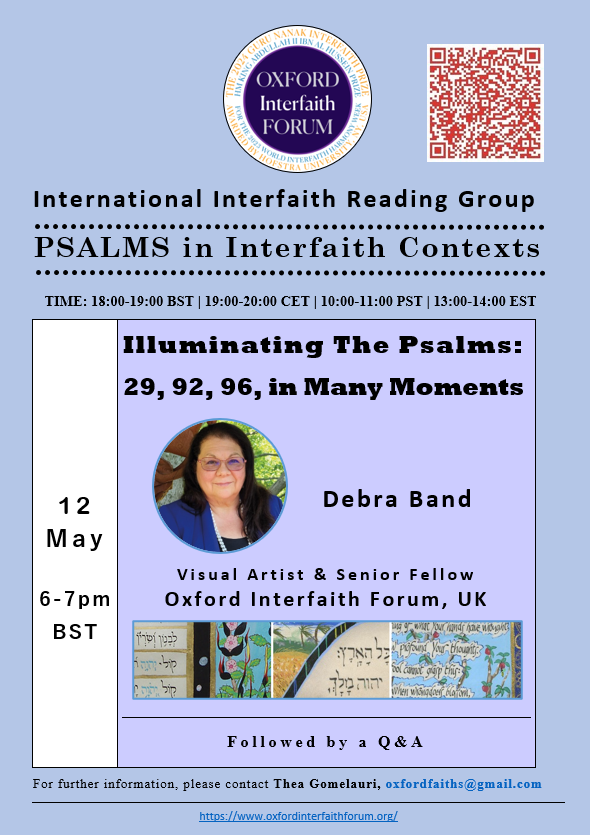
Topic: Illuminating The Psalms: 29, 92, and 96, in Many Moments
Abstract: For more than two and a half millennia the verses of the Psalms have welled up in the hearts and minds of Jews and Christians in countless situations, from reveries about the beauty and order of the world, celebration of the power of the divine, desperate prayer for rescue from danger, to confidence that God will always be at our side. Indeed, our immediate emotional and spiritual needs, the public or private settings of our song, even our fleeting moods, shade our conversations with the divine as we read and sing the Psalms in different moments of our lives. Hebrew manuscript artist and scholar Debra Band has approached the Psalms in several illuminated books. In this slide discussion Band will present the very different interpretations of three psalms, numbers 29, 92 and 96, as each is interpreted in two of her books, I Will Wake the Dawn: Illuminated Psalms (with Arnold J. Band, JPS 2007), and Kabbalat Shabbat: the Grand Unification (with Raymond P. Scheindlin, Honeybee in the Garden, 2012). In the many vibrant illuminated paintings accomplished for each book, Band employed the full panoply of Hebrew manuscript arts to express the intricate visual symbolism she developed to express the subtleties and beauty of these beloved poems.
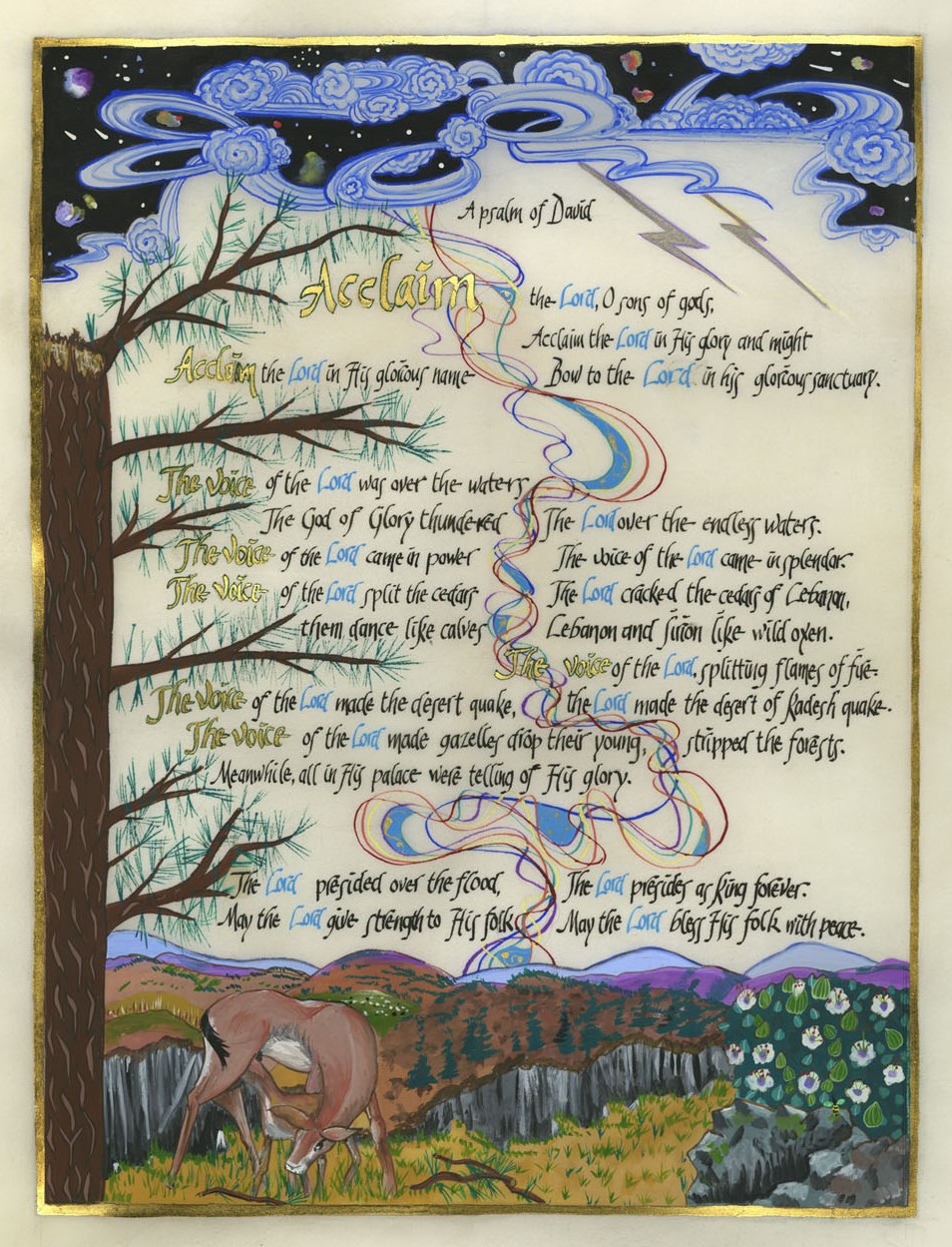
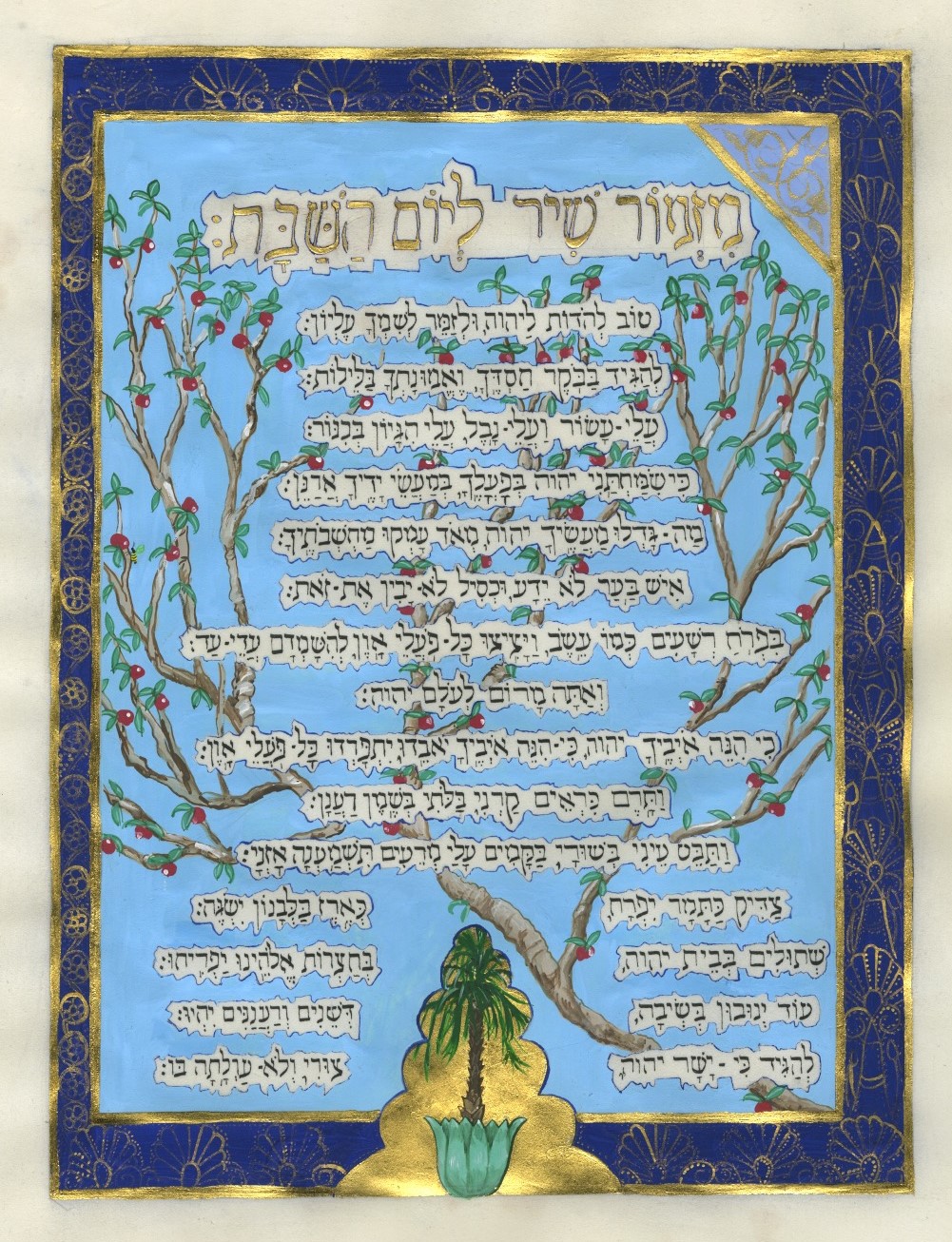

Speaker’s biography: Debra Band’s work in Hebrew illuminated manuscripts draws upon her love of both the manuscript arts and biblical studies. She holds a BA Honours in History from Concordia University in Montreal and an MS in Political Science from MIT, and turned full attention to Hebrew manuscript arts in 1987. Descended from an eminent rabbinic family, her extensive studies of Jewish texts and research into medieval European and middle Eastern painting and manuscripts inform her work. Her work, celebrated for its intellectual and spiritual depth as well as visual beauty, includes illuminated and papercut books and ketubot, other manuscript pieces and papercuts, in exhibits, private collections, community institutions and galleries across the English-speaking world.
Debra is the artist and author of The Song of Songs: the Honeybee in the Garden (Jewish Publication Society, 2005), I Will Wake the Dawn: Illuminated Psalms, (Jewish Publication Society, 2007), Arise! Arise! Deborah, Ruth and Hannah (Honeybee in the Garden, 2012), Kabbalat Shabbat: the Grand Unification, with Raymond P. Scheindlin (Honeybee in the Garden, 2016), All the World Praises You! an illuminated Aleph-Bet book (Honeybee in the Garden, 2018), and Qohelet: Searching for a Life Worth Living, with Menachem Fisch (Baylor University Press, 2023). Her collaboration with the renowned scholar of Jewish mysticism, Arthur Green, and astrophysicist Howard Smith on Secrets of Creation: Mysticism Meets Science and Art an illuminated book and commentary of a 16th century Kabbalistic work, will be published in summer 2025. Her present work focuses primarily on works of inter-religious dialogue; she is engaged in three new international collaborative book projects with leading Jewish, Christian and Muslim scholars. Her work regularly tours museums and galleries across the United States, and is featured in many Jewish and Christian scholarly works. She lectures frequently on her work across the United States, in locations as varied as synagogues, Christian seminaries, the Library of Congress and universities around the world. For more information, please see www.dbandart.com.
Chair: Dr Elizabeth Mackintosh, Fellow of the Oxford Interfaith Forum.
Time: 18:00-19:00 BST | 19:00-20:00 CET | 10:00-11:00 PST | 13:00-14:00 EST
Venue: Online
Debra Band’s Publications
Related Sessions
- Illuminating The Psalms: 29, 92, and 96, in Many Moments

- Psalm 136: Hesed as Praxis
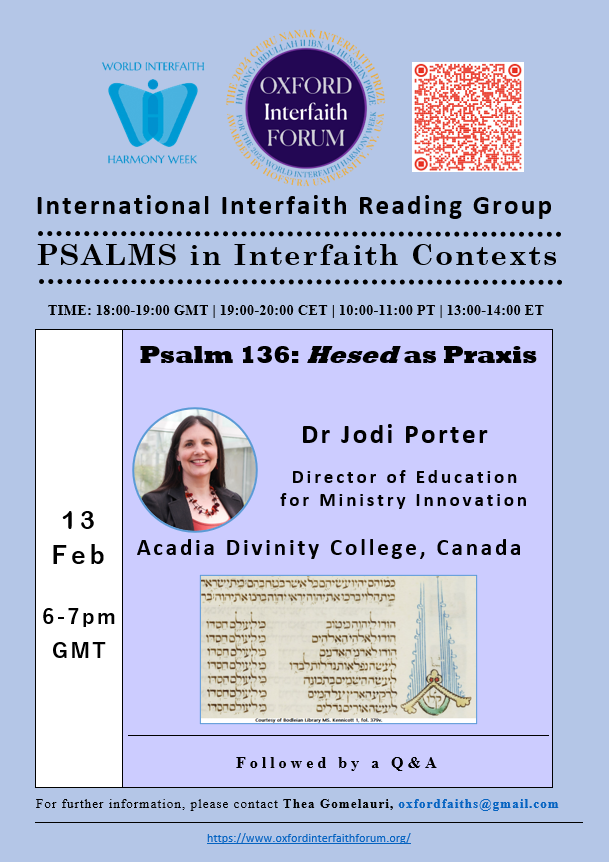
- Was Genesis 1 Dependent on Psalm 104?
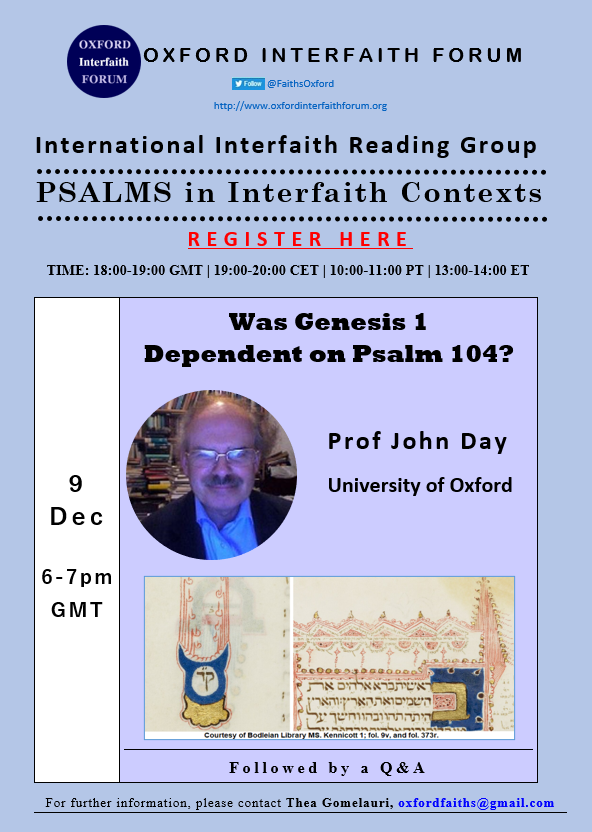
- The Seven Penitential Psalms in the Allegorist’s Hands
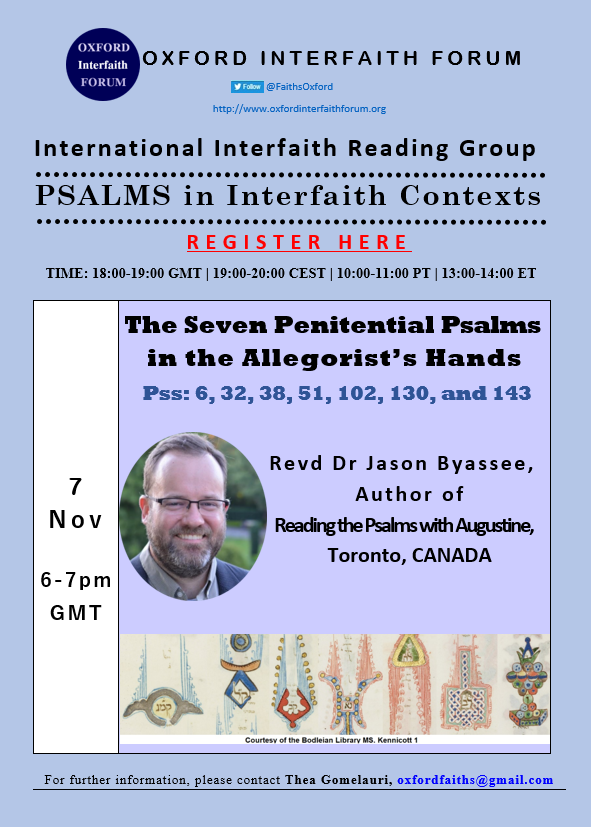
- Beyond Exegesis: The Psalm Cultures of Ancient Jews and Early Christians
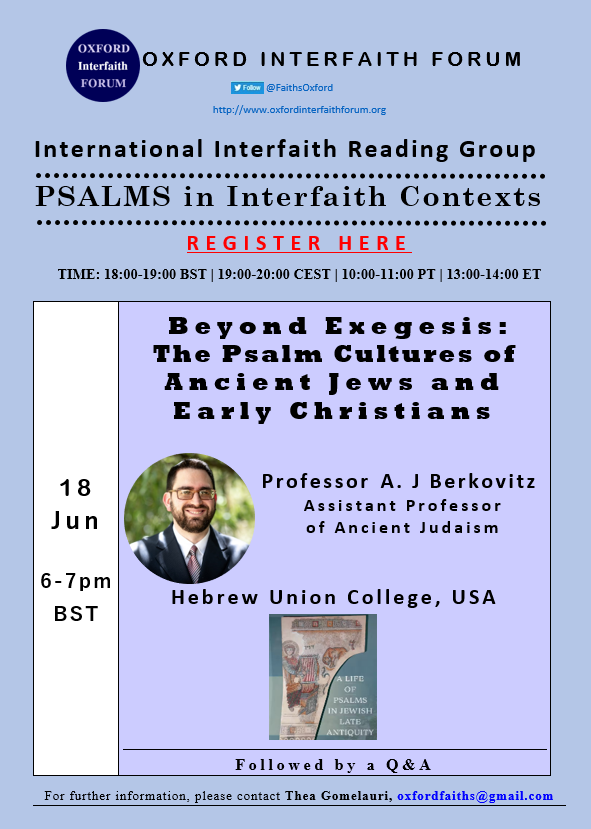
- Psalm 40 and Messiness of Prayer
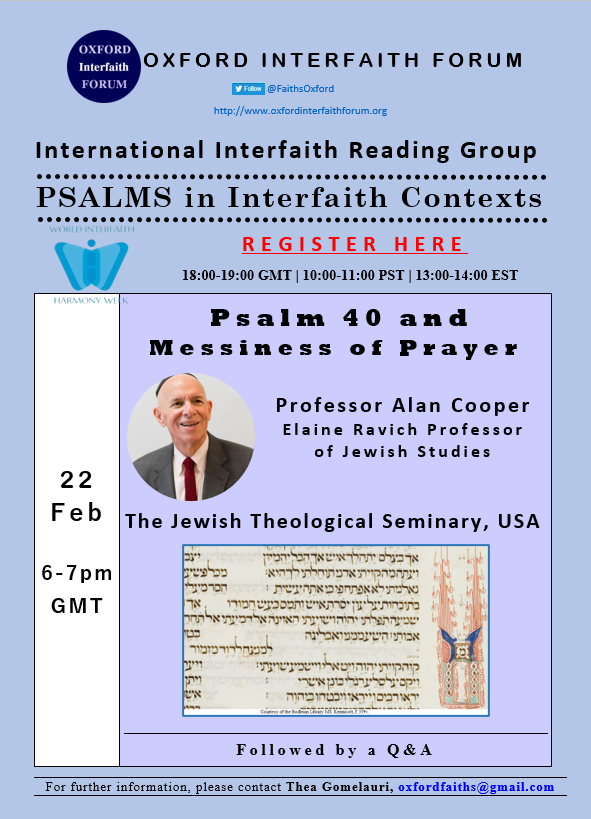
- Psalm 109: The Prayer No One Wants
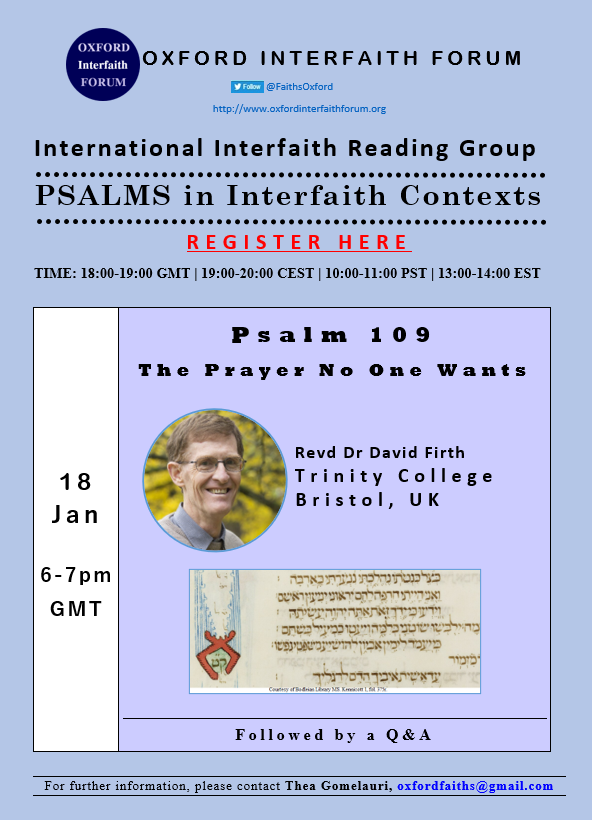
- Psalmody as an Alternative to Theodicy
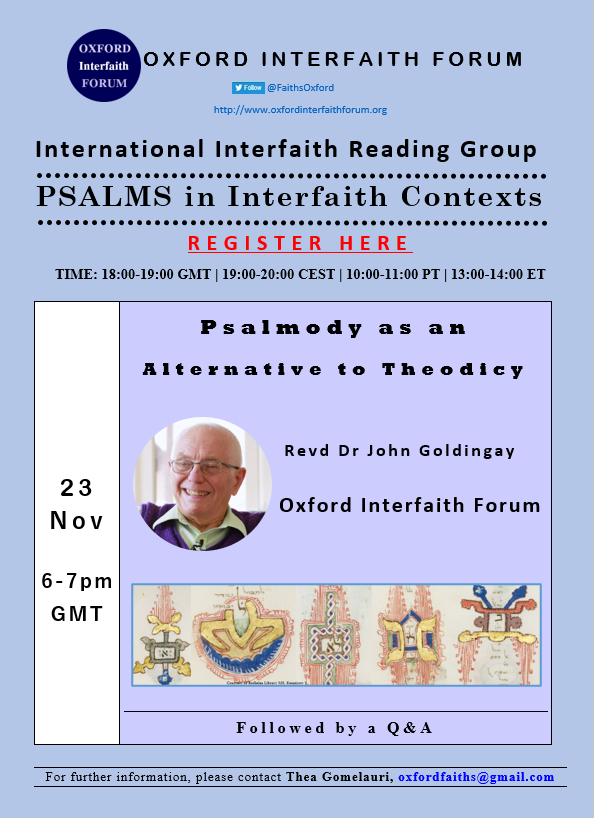
- Psalm 44 and the Book of Job: God on Trial
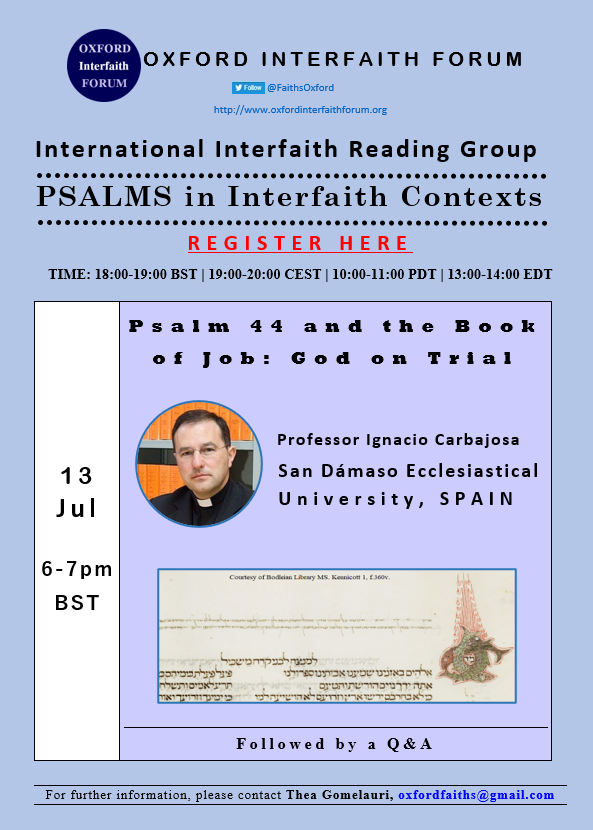
- Exile and Restoration in the Psalms
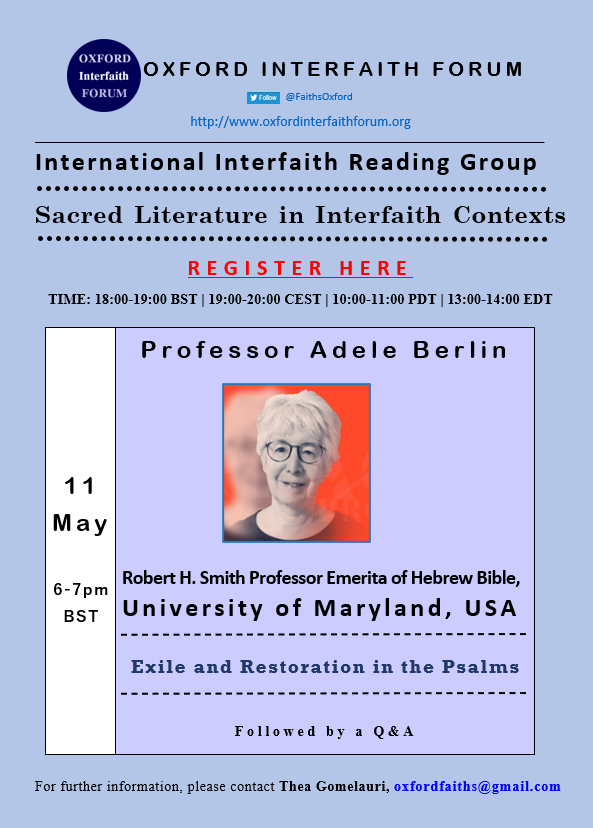
- ‘Deep cries unto deep’: Julian of Norwich and Psalm 42
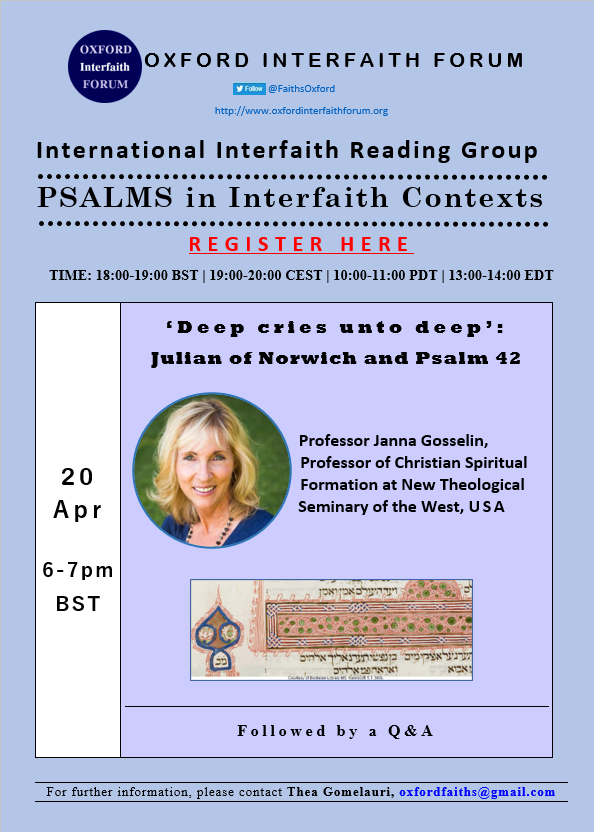
- Ancient Versions of Psalms in Dialogue: Psalms 49 and 104
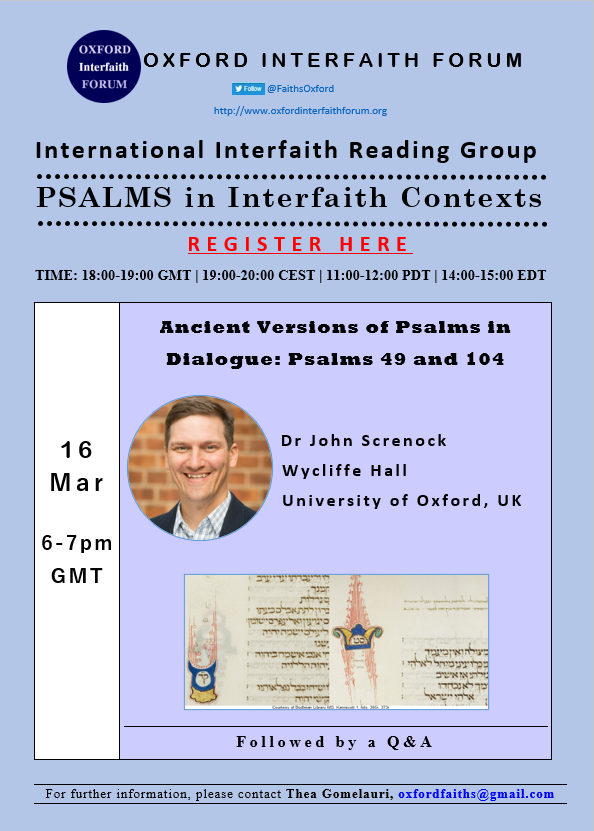
- Awake, My Soul! Psalms: 44; 57; 133; 143
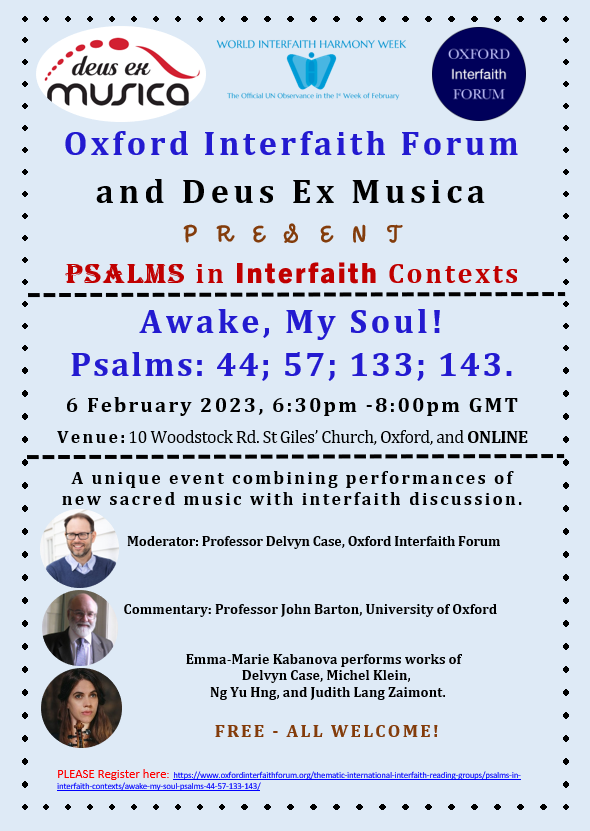
- Psalm 106: Fall of Jerusalem and Lamentations Ch. 3
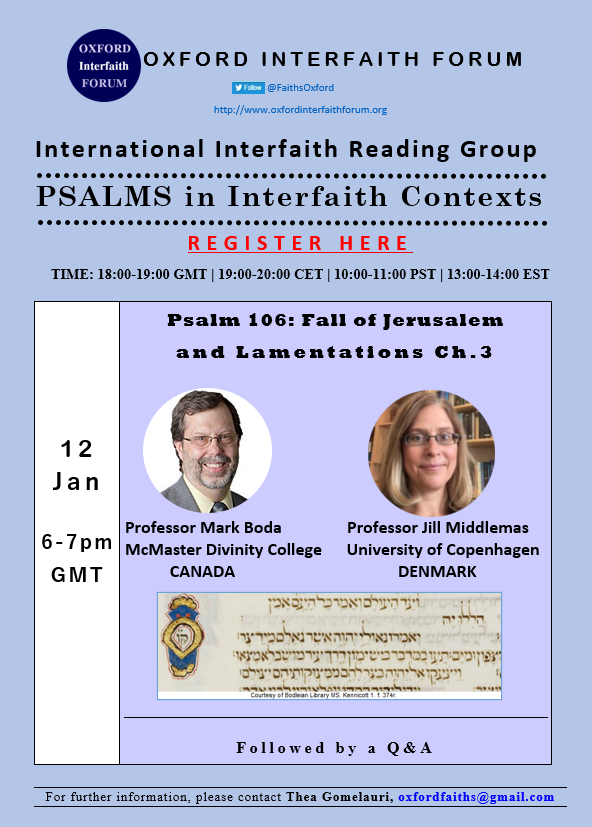
- Psalm 37:25, Innocent Suffering, and Divine Recompense
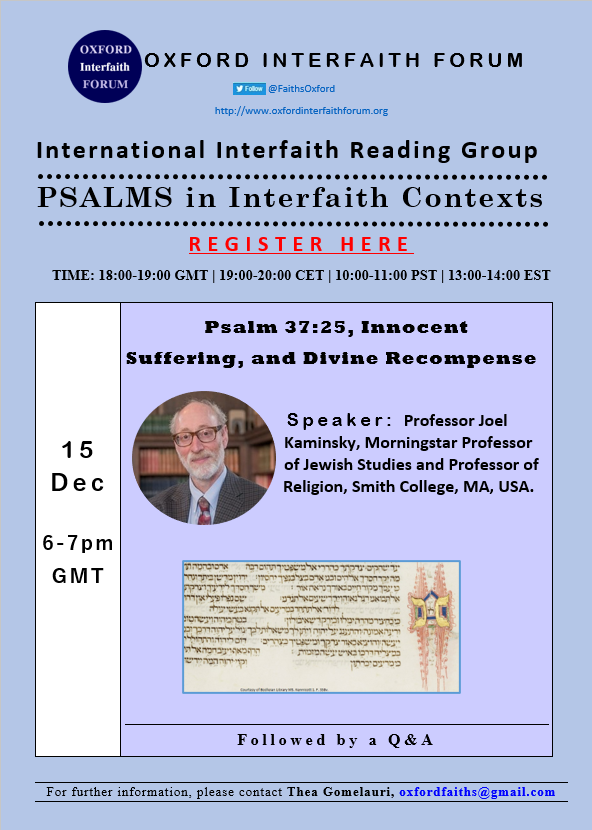
- Spurring Colonialism and Slavery: Protestants and Catholics United in their Use of Psalm 132
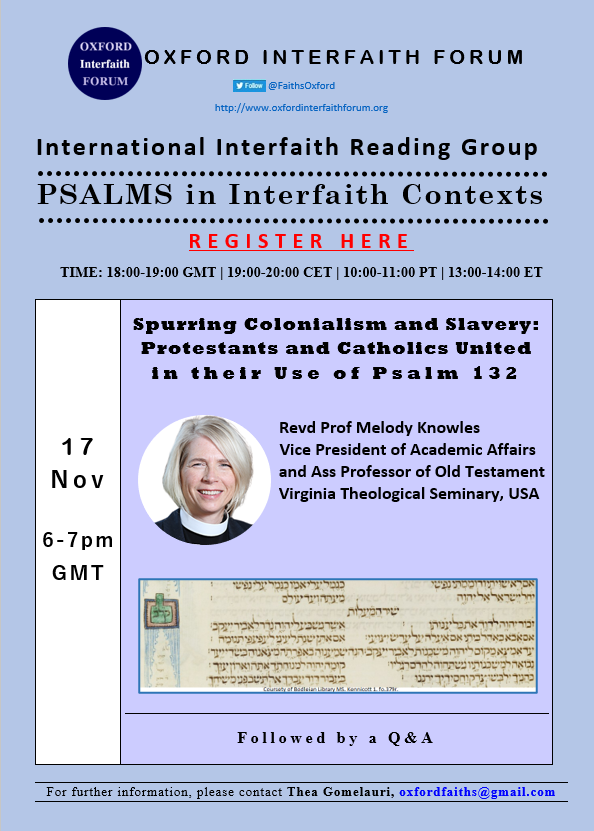
- Midrash Tehillim on Psalm 24
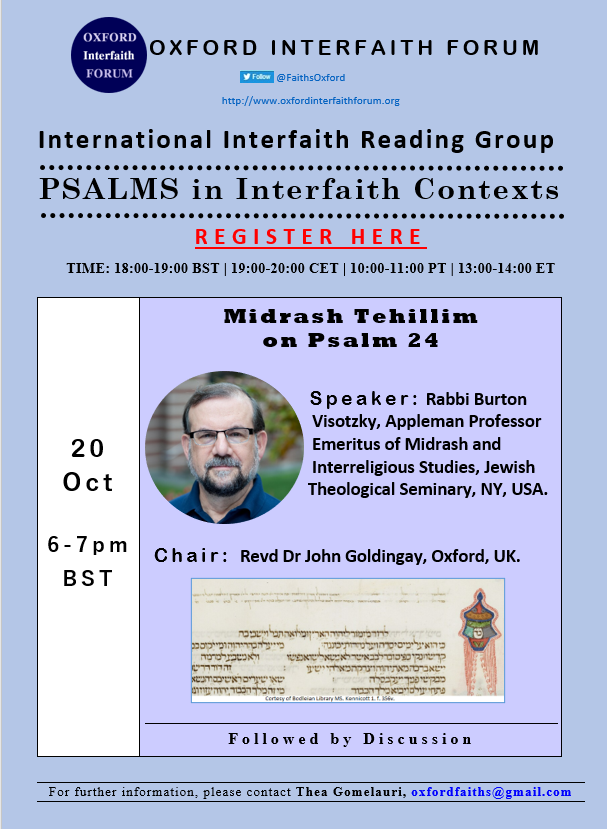
- Psalm 19: Muslim Reflections on Creation
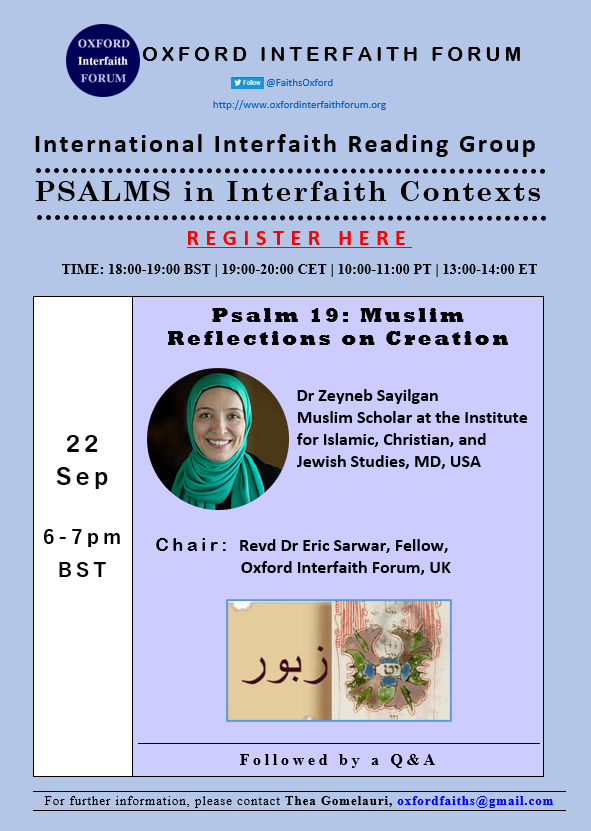
- Psalm 46: Singing in Hope and Defiance
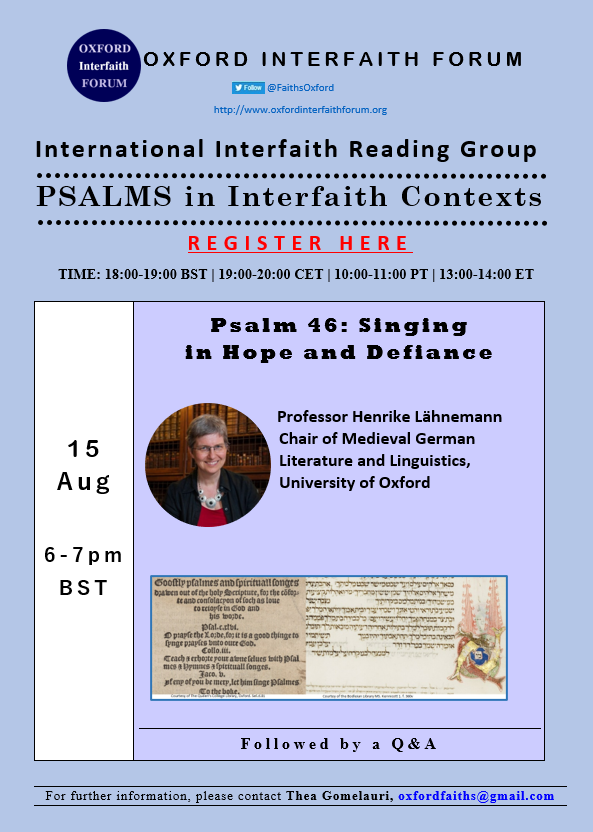
- When Music Meets Psalms: Psalm 130
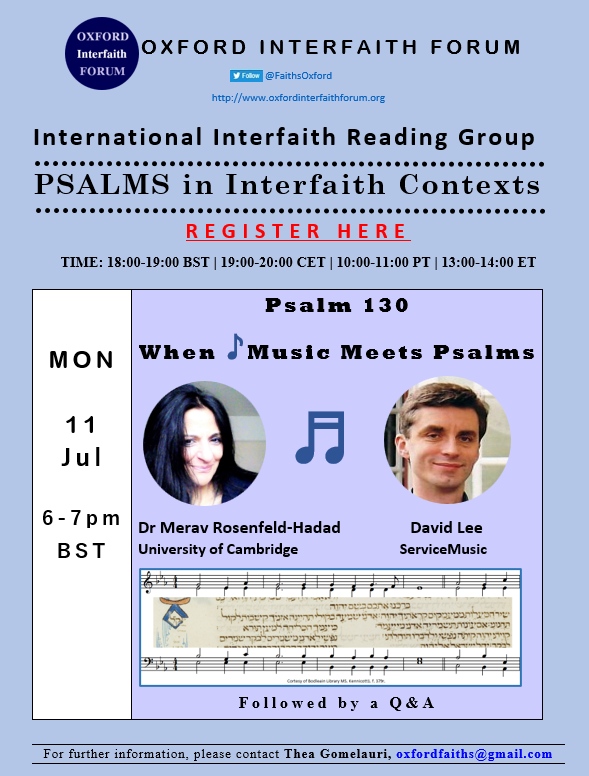
- Psalm 131: How I Weaned Myself from the Breast of God
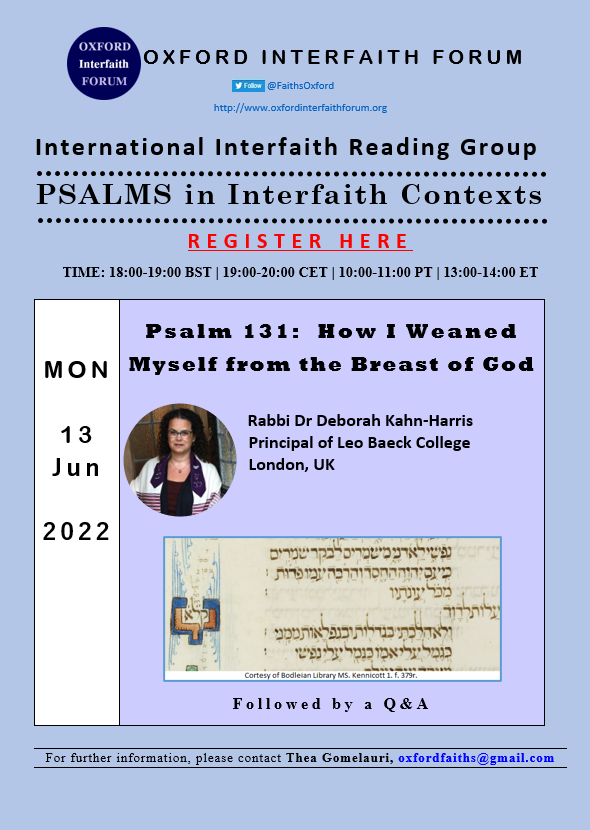
- Psalm 132: A Song of Ascents
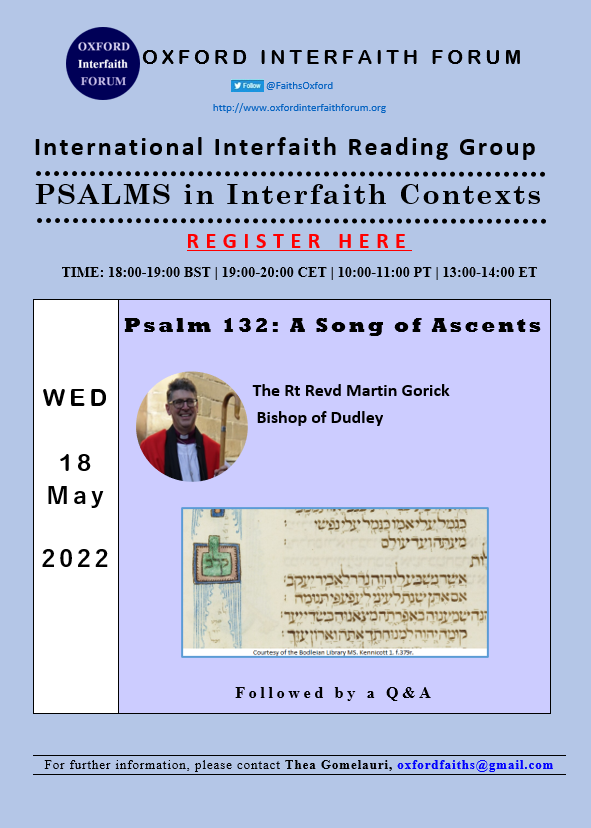
- Psalm 88: ‘Fists Flailing at the Gates of Heaven’
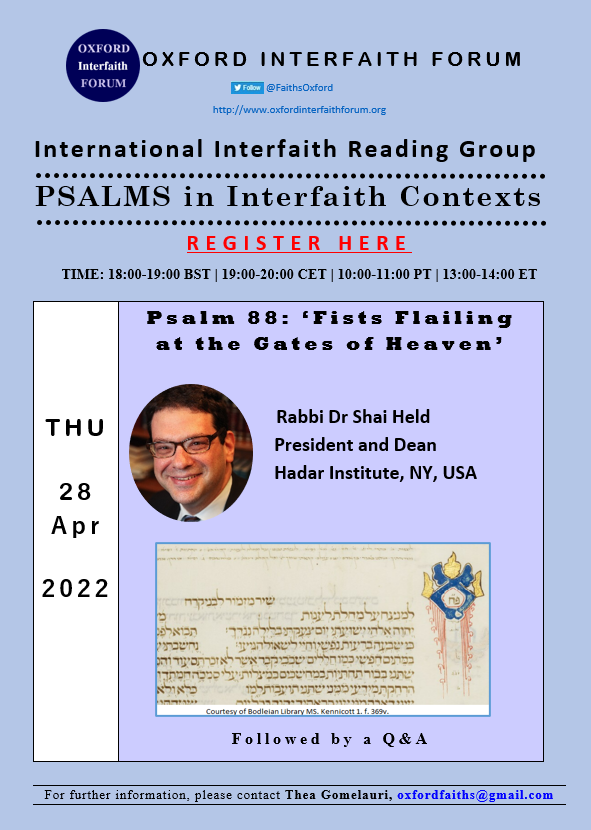
- Psalm 82: Demanding Justice
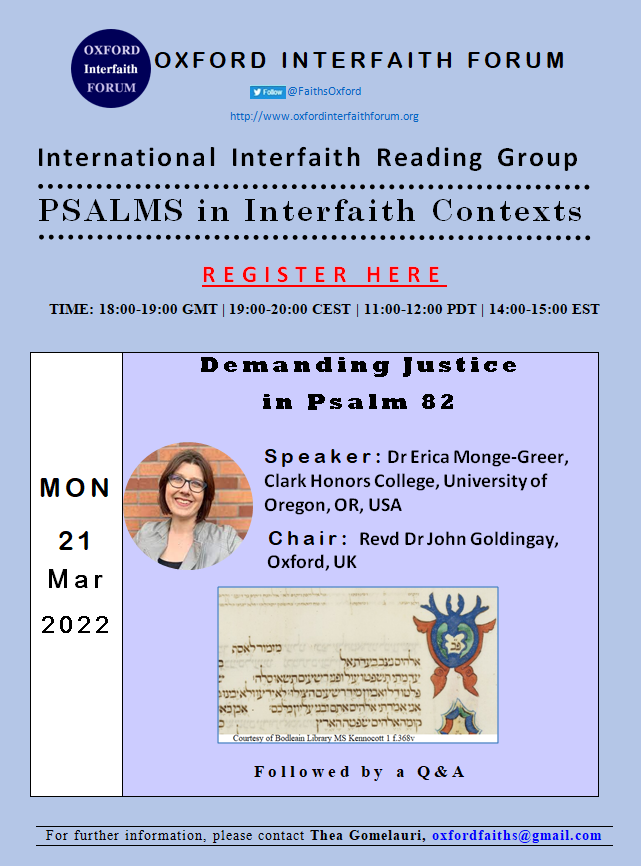
- Psalm 51: Contemporary Multifaith Interpretations
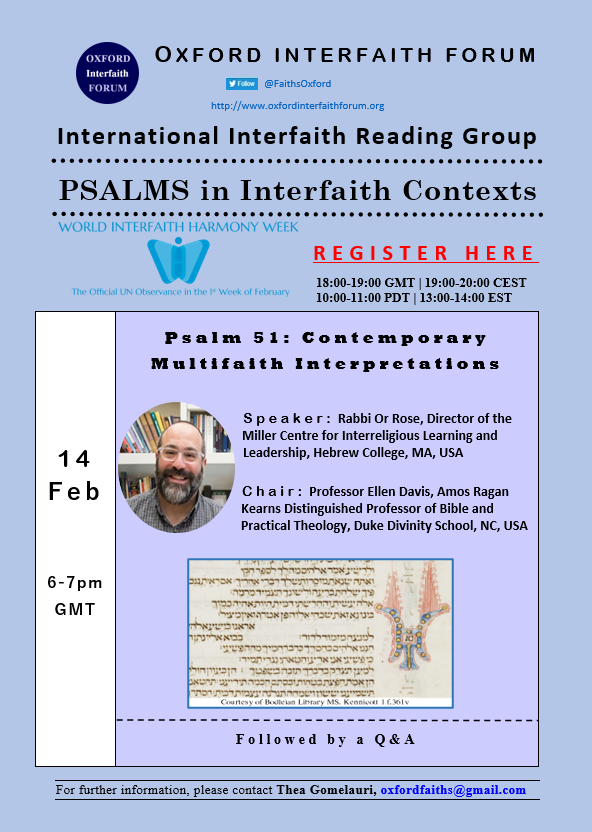
- Comparative Reading of Psalms and Abrahams’ Prayers in the Quran
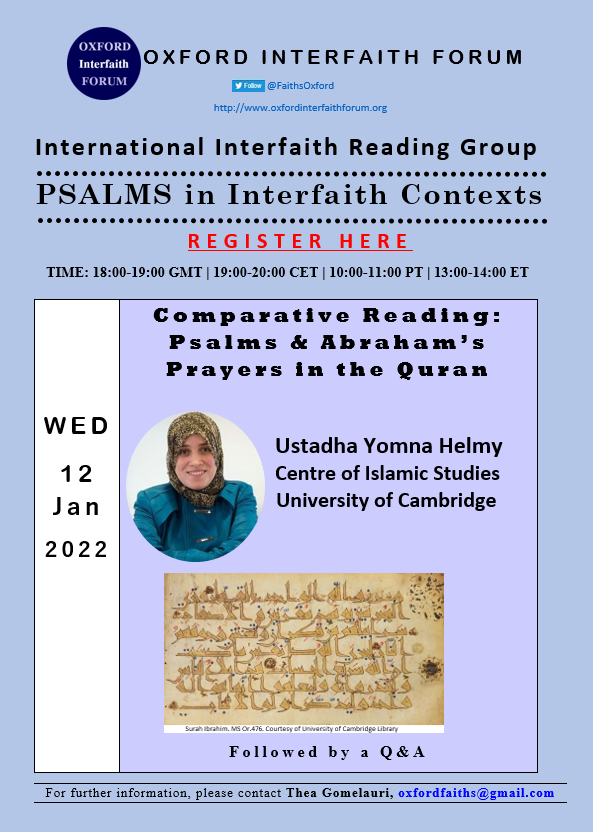
- Psalm 33: Mystical Reading
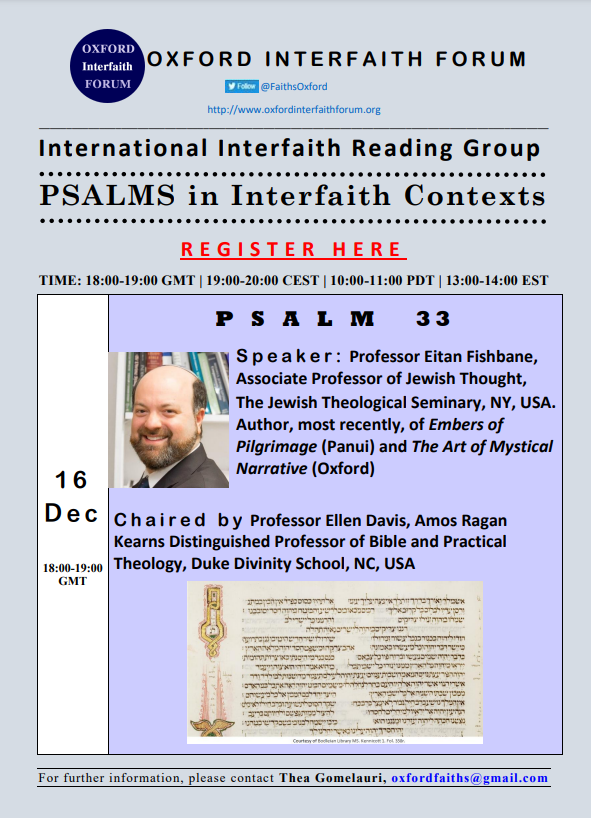
- Psalm 139
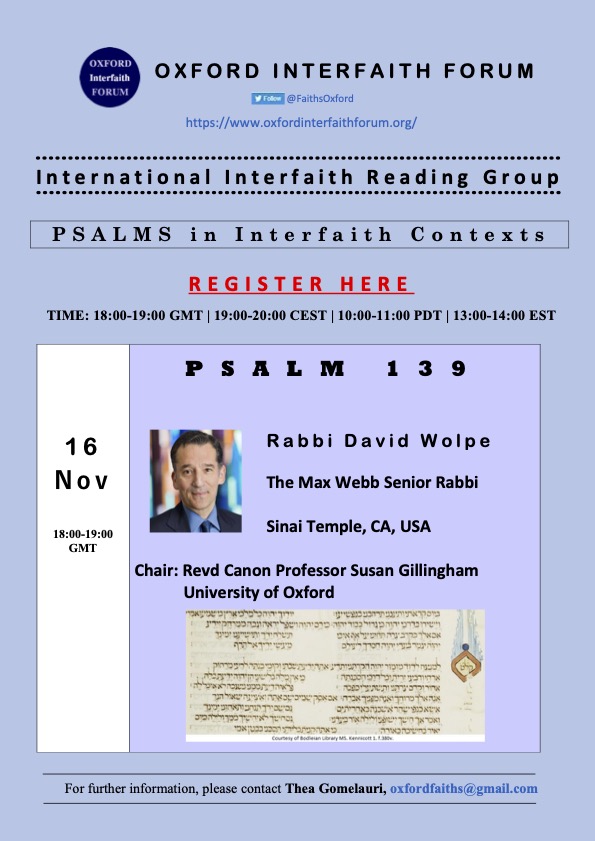
- Psalm 1: Inaugural Session by Revd Dr John Goldingay
